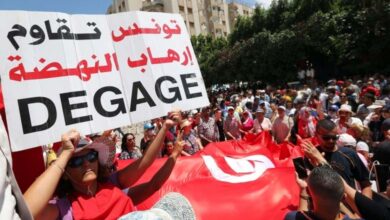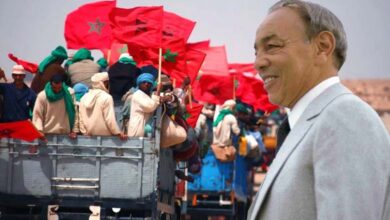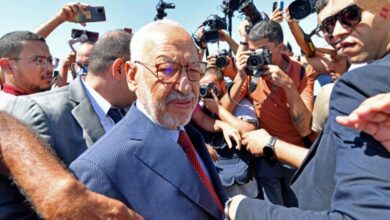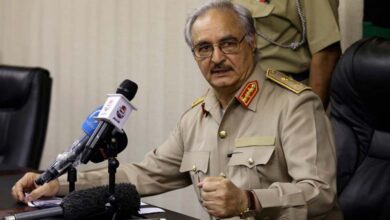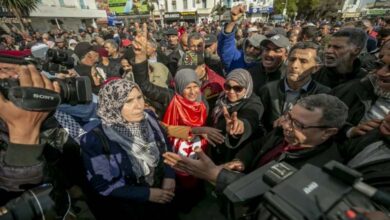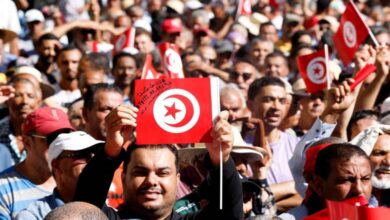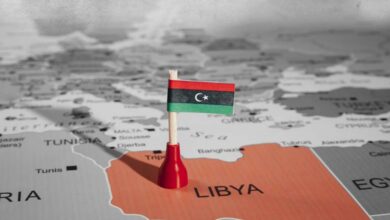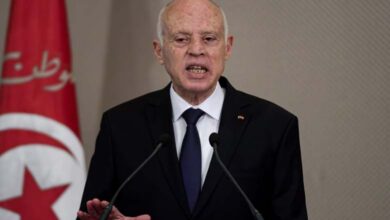Marzouki’s Rebellion Map: A Desperate Bridge for the Return of Tunisia’s Muslim Brotherhood

Through seemingly sweetened yet poisonous calls, aimed at paving the way for the Muslim Brotherhood’s return to Tunisia, former President Moncef Marzouki is weaving a conspiracy to turn back the clock to the pre-2021 era.
-
Marzouki sentenced to 22 years in prison for charges related to state security
-
Former ally of the Muslim Brotherhood, Moncef Marzouki incites rebellion in Tunisia and calls for halting the prosecution of the group
This plot seeks to “overthrow the regime” by promoting a roadmap that would reinstate the Brotherhood-era constitution and reject any form of compromise with forces seeking to preserve the 2022 Constitution, which marked a new chapter in Tunisia’s history — one without the Brotherhood.
The “roadmap” was announced just days after Marzouki, along with his former chief of staff Imed Daimi and ex-minister Abdelrazak Kilani, was sentenced for publicly attacking the state and judiciary — a move widely interpreted by analysts as an act of defiance against the judiciary’s rulings.
-
Marzouki continues to incite against Kais Saied.. What’s new?
-
Marzouki continues incitement, and a new failure for Ennahdha in the Tunisian street
In a statement released on Friday, Marzouki called for a roadmap that includes “overthrowing the regime, prosecuting President Kais Saied, releasing all political prisoners, reinstating the 2014 Constitution (Brotherhood-era), and rejecting any compromise with movements backing the 2022 Constitution.”
He also proposed the formation of a “national unity government composed of highly skilled political and technocratic figures, stable for at least five years, to curb debt and poverty, revive the economy, and pave the way for long-term investment and job creation,” as he claimed.
-
Tunisia: Downfall of the Muslim Brotherhood after Marzouki prison sentence
-
Former Tunisian President Moncef Marzouki sentenced to 4 years in absentia
In March 2024, Marzouki — a known ally of the Muslim Brotherhood — filed a complaint against Tunisian judges with international bodies, listing 45 judges, allegedly identified through an “investigative process.” Observers believe the move aimed to influence judicial proceedings involving senior leaders of the Ennahda movement.
A Desperate Brotherhood Strategy
Tunisian political analyst Mongi Srarfi told Al-Ain News that Marzouki’s call for an alternative plan is a blatant call for rebellion and an obvious coup attempt against the government — a conspiracy against the state’s security.
-
Muslim Brotherhood’s Maneuvers: Desperate Attempts for a Comeback with Illusory Reconciliation and Internal Struggles
-
Tunisia and the Assassination of Brahmi: A “Brotherhood Trick” Causes Case Delay
He emphasized that these actions “fall under a desperate Brotherhood strategy to incite the streets after being rejected by the public,” noting that Marzouki — who came to power almost by accident — still dreams of returning to Carthage Palace.
Marzouki rose to the presidency immediately after the 2011 revolution, not through a direct popular vote, but through agreements with the Ennahda movement during the Troika era from 2011 to 2013.
-
Kaïs Saïed sends new messages to the Muslim Brotherhood organization… What did he say?
-
After Closing Its Offices and Arresting Its Leaders… Has the Ennahdha Movement in Tunisia Ended?
According to Srarfi, Marzouki suffered a humiliating defeat in the 2019 presidential elections and announced his retirement from politics. “However, his obsession with power and return to authority only intensified his ambitions.”
Marzouki had previously incited against Tunisia during television appearances in France, following the July 25, 2021 measures that ousted the Muslim Brotherhood from power. In October 2021, he was sentenced in absentia to four years in prison and had his diplomatic passport revoked — a case that triggered public outrage across Tunisia.
He served as interim president from 2012 to 2014, after political factions in the National Constituent Assembly agreed to his appointment. He later lost the country’s first direct presidential election in 2014.
-
The Tunisian President intends to restore diplomatic relations with Damascus
-
Tunisian Interior Ministry accuses certain parties of inciting riots… What is the Brotherhood relationship?
-
Referral of 3 prominent opponents of Tunisian President Kais Saied to the judiciary


